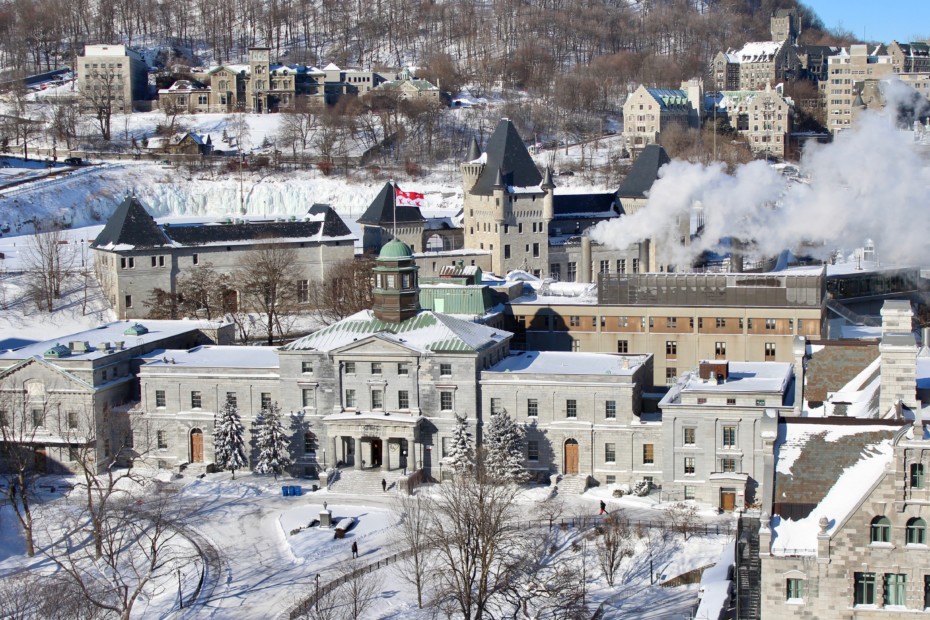Excitement and anxiety are the dominant emotions that I feel as I graduate this semester and prepare to begin graduate school in September 2020. Having spread my degree over five years, I have watched the McGill community grow and change over time, and there are a few things that I wish I had known when I first got here.
GPA alone is not sufficient
Frankly, I’ve gotten my fair share of Bs and Cs. As a result, I was rejected three years in a row from the Psychology Honours program. As a result, I thought that this first experience with failure defined me.
After facing those rejections, I decided to spend my last two years focussing outside of my own academic field by finding professors in other disciplines who shared my passions, seeking hands-on experiences throughout Montreal, and even volunteering in Indonesia for a summer. How I reacted to my past failings ultimately led to my subsequent successes—most notably, an acceptance to my dream program, the Master’s of Public Health at Columbia University. McGill’s structure may place value on certain metrics of success, such as GPA and research, but the truth is, the world beyond can think a little differently.
Don’t compete; collaborate
Being surrounded by high-achieving and hard-working students every day made me feel like I had to emulate their behaviours such as binge drinking, barely sleeping, and studying for unhealthy amounts of time. Despite the fact that I was overwhelmed with stress and anxiety by following these normalized patterns, I didn’t seek any help. I blamed myself, thinking that I could not handle McGill’s ‘work hard, play hard’ environment. Upon receiving my diagnoses of anxiety and depression, I learned that if you push yourself to the extreme, something is bound to give.
I decided to be vocal about my recovery process, which involved months of therapy, antidepressants, and tackling the stigma of mental illness on campus. As university students, we don’t think often enough about checking in with our friends, our classmates, or even ourselves. Following the destructive cycle of my first year, I took baby steps toward healthier coping mechanisms, such as ensuring that I got enough sleep each night and drinking less.
Being open not only made me feel better, but it made a difference with my peers, too. While sharing this difficult experience made me feel extremely vulnerable, nothing was better than admitting that ‘I am not okay.’ The more I was open about how the McGill culture masked the symptoms of my depression and anxiety, the more students asked if I could help them access support too. All of a sudden, I had created a space where those in my social group did not have to be alone and isolated about their difficulties in university and could share their experiences in coping with the pressure.
McGill doesn’t define you
Spending my entire life in first year within the confines of the Milton-Parc neighbourhood made it impossible to separate myself from my identity as a McGill student. Moving out to the Plateau and exploring the city on the weekends as well as volunteering for organizations such as the ICU Bridge Program at the Jewish General Hospital gave me the opportunity to explore different parts of my identity beyond being a student. These experiences provided me with different perspectives that helped me appreciate how lucky I am to live in a vibrant city with plenty of opportunities. Most importantly, they helped push me outside of my comfort zone and prepared me for the world after undergrad.
As I get ready for Columbia, I’m thankful that I recognized the perils of a high-pressure university environment and learned to move away from this toxic ideology by embracing vulnerability within myself and my peers. After five years of important experiences and struggles at McGill, I developed into a stronger and happier person, and I discovered who I am beyond the Milton Gates.









I am 76 years young ( not a university graduate) and I never perceived McGill to have such a core. I am happy this student was reflective enough on her situation, thought it thoroughly , looked up other avenues, made a new smart choices.